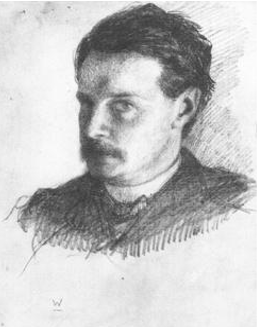Psychology Chapter 1 Review
1/34
There's no tags or description
Looks like no tags are added yet.
Name | Mastery | Learn | Test | Matching | Spaced |
|---|
No study sessions yet.
35 Terms
Psychology
Scientific study of the human mind and behavior
Scientific Method
Question about how/why something happens
Propose hypothesis (a testable explanation/prediction)
Accumulation of evidence leads to theory (broad collection of evidence)
Empirical method
Acquiring knowledge through observation and experimentation (vs. logic or intuition)
Wilhelm Wundt
A founder of Psychology
created the first Psychology research laboratory
Emphasized Structuralism
To him, psychology was the study of conscious experience, and the goal of psychology was to identify components of consciousness and how those components combined to result in our conscious experience
Structuralism
Understanding the Structure and Characteristics of the mind through Introspection
Introspection
Process by which someone examines their own conscious experience in an attempt to break it into its component parts
William James
-First American psychologist
-Emphasized Functionalism

Functionalism
Emphasized how mental activities contributed to basic environmental survival
Based on Darwin’s idea of natural selection and adaptation—behavior that is adaptive (enhances survival and reproduction fitness) is selected for and continues
Some introspection but also more external observable methods, some anatomy & physiology
Sigmund Freud
Had the idea that The unconscious mind contains urges and feelings that we’re not aware of but that influence our behavior, and the only way to help these people was to gain access to the unconscious
Developed the Psychoanalytic Theory
Studied “hysteria” and neurosis
Problems are because of the unconscious mind
Thought he could access the unconscious mind through dream analysis
Psychoanalytic Theory
Focused on the unconscious mind & drives as as early-childhood experience
Developed by Sigmund Freud
Generative
Focused on building a theory
Empirical
Focus on observable data
Gestalt Psychology
“Whole” or “Form”
The whole of a sensory experience is greater than the sum of its parts
Kohler, Koffka, and Wertheimer were German psychologists who immigrated to the U.S. to escape Nazi Germany
Perception of sensory information is not merely combining individual pieces, rather, focus on the composite whole which forms our perception
Ivan Pavlov
Discovered the concept of classical conditioning
Classical Conditioning
Stimuli and reflexes
Pairing of natural associations with learned associations
John Watson
____ is known as the father of behaviorism within psychology.
Believed that objective analysis of the mind was impossible
Instead, focused on observable behavior and ways to bring that behavior under control
Implications for cognitive-behavioral therapy (CBT)
B.F. Skinner (Operant Conditioning)
Concentrated on how behavior was affected by its consequences
Studied the principles of modifying behavior through reinforcement and punishment as major factors in driving behavior
Answer as: name of psychologist (type of conditioning)
Abraham Maslow (Humanism)
Emphasis on people’s capacity for good
Proposed a hierarchy of human needs in motivating behavior
Asserted that so long as basic needs necessary for survival were met, higher-level needs would begin to motivate behavior
Answer as: name of psychologist (name of psychological approach)
Carl Rogers (Humanism)
Developed a client-centered therapy method
Believed therapists need:
Unconditional positive regard
Genuineness
Empathy
Answer as: name of psychologist (name of psychological approach)
Client-centered Therapy
Involves the patient taking a lead role in the therapy session
The Cognitive Revolution
By the 1950’s, new disciplinary perspectives in linguistics, neuroscience, and computer science were emerging
The mind became the new focus of the scientific inquiry
Noah Chomsky
He believed psychology needed to incorporate mental functioning into its focus in order to fully understand human behavior
Western, Educated, Industrialized, Rich, Democratic
Psychology has a history of studying primarily W.E.I.R.D societies
w______
E______
I_______
R______
D______
Operant Conditioning
B.F. Skinner pioneered _______?
Self-Actualization
The highest level of Maslow’s hierarchy of needs is ______?
Structure, Function
Biological psychologists study how the ________ and ________ of the nervous system generate behavior
Research can include:
Sensory and motor systems
Sleep
Drug use and abuse
Ingestive behavior
Reproductive behavior
Neurodevelopment
Plasticity of the nervous system
Biological correlates of psychological disorders
Perception
Experience of the world which is influenced by where we focus our attention, our previous experiences, and our cultural backgrounds
Sensation
Sensory information (sights, sounds, touch, smell)
Personality Psychology
Focuses on behaviors and thought patterns that are unique to each individual
Social Psychology
How individuals interact and relate with others and how such interactions can affect behavior
Prejudice
Attraction
Interpersonal conflicts
Obedience
Health Psychology
Focuses on how individual health is directly related or affected by biological, psychological, and sociocultural influences
The biopsychological model suggests that health/illness is determined by an interaction of these three factors
Clinical Psychology
Focuses on the diagnosis and treatment of psychological disorders and problematic patterns of behavior
Studies involved therapy and counseling
Cognitive-behavioral therapists take cognitive processes and behaviors into account when providing psychotherapy
Industrial and Organizational (I/O) Psychology
Applies psychological theories, principles and research to industrial and organizational settings
Involves issues related to personnel management, organization structure and workplace environment
Sports and Exercise Psychology
Psychological aspects regarding sports and physical performance
Study includes motivation, performance related anxiety, and general mental well-being
Forensic Psychology
Deals with justice system
Tasks include assessment of individuals’ mental competency to stand in trial, sentencing and treatment suggestions, and advisement regarding eyewitness testimonies